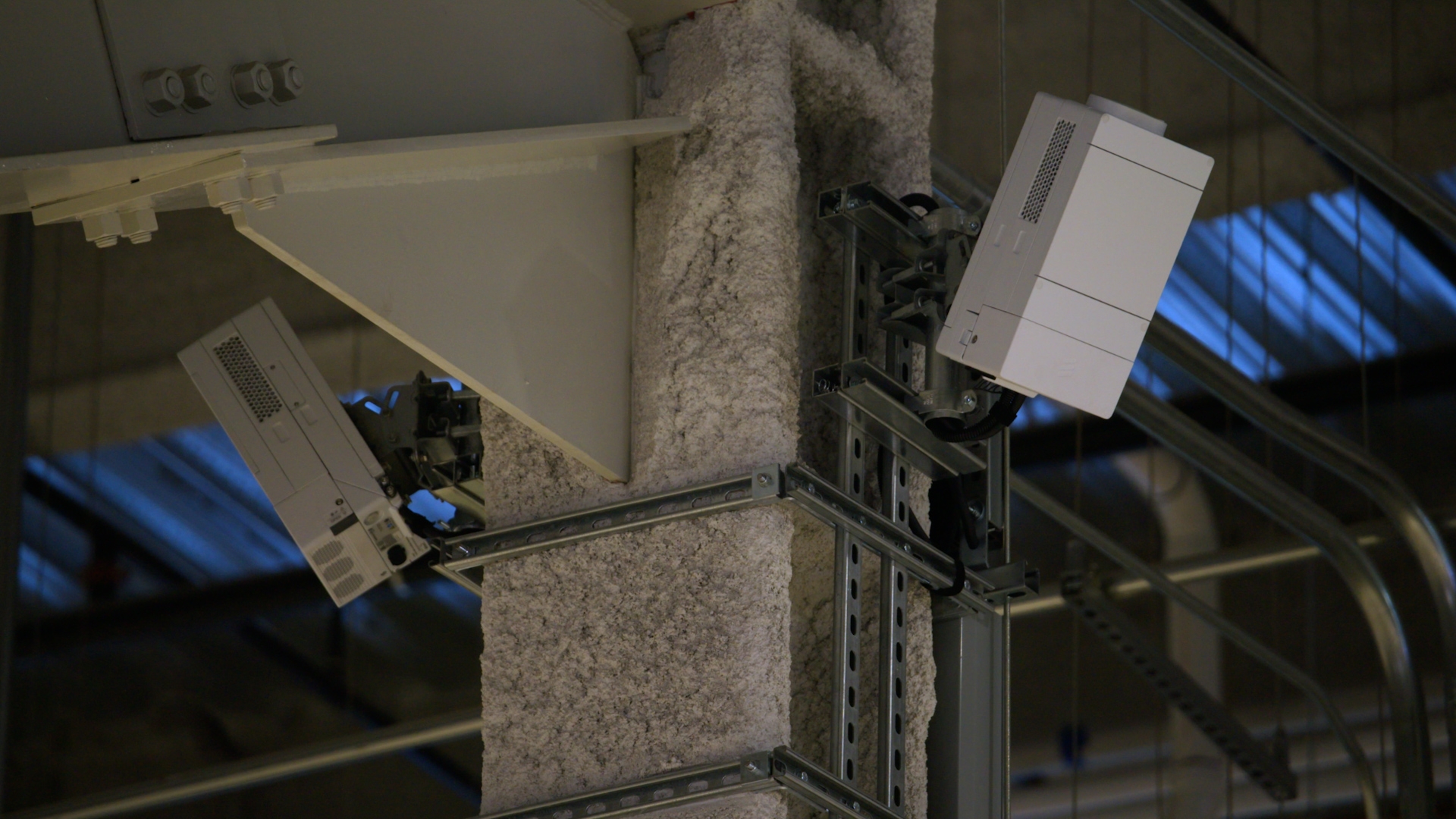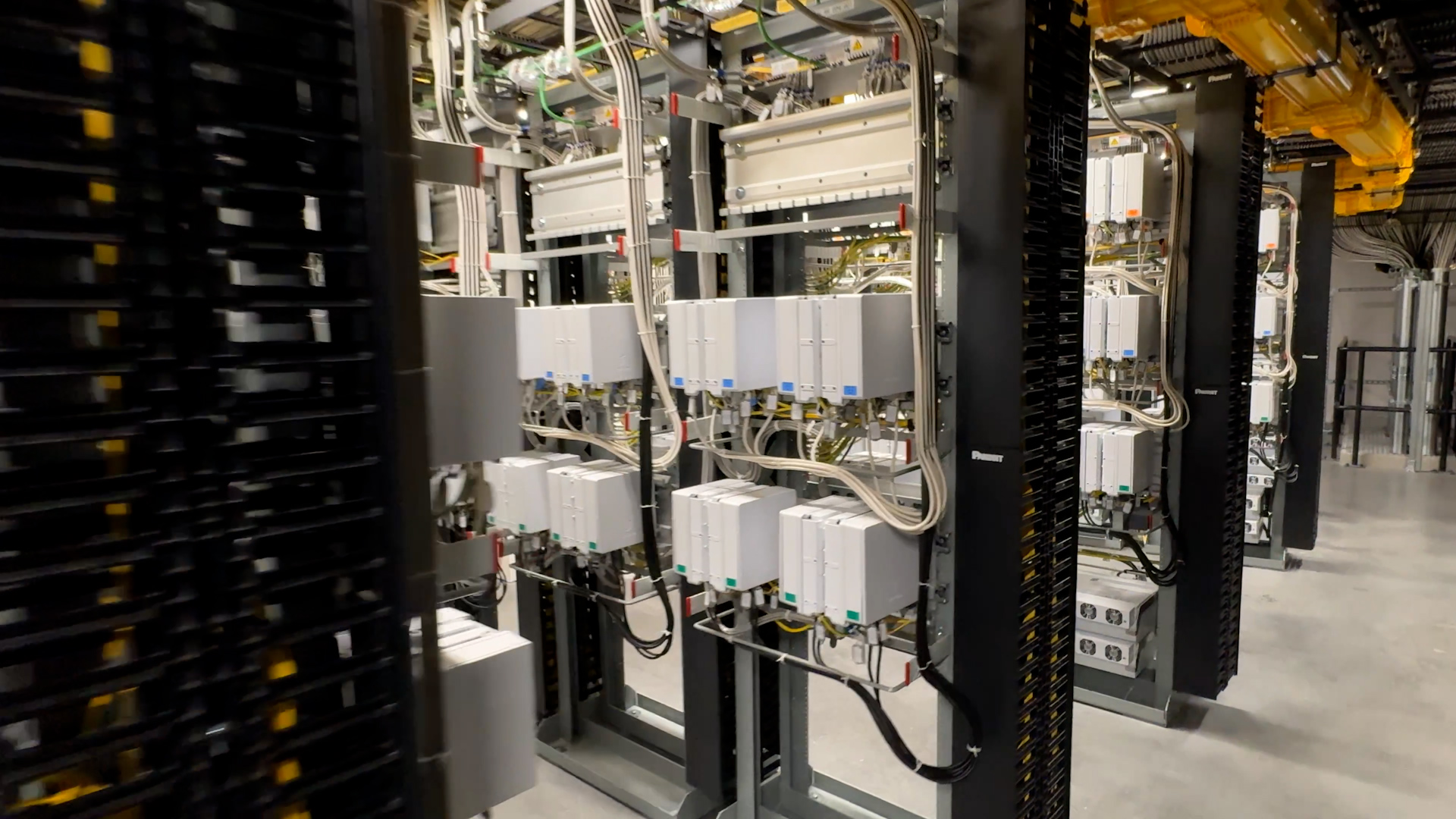Super Bowl LVIII: Coaches To Rely on Verizon 5G Private Network; Are Broadcasters Next?
Massive deployment of public and private networks takes 5G coverage to new level
Story Highlights
Verizon’s private wireless solution, referred to as “coach-to-coach,” played a pivotal role in every NFL game this season, and this year marks the very first time the technology will be used during a Super Bowl game. Super Bowl LVIII will continue the evolution of 5G integration across nearly every aspect of the fan experience, venue operations, and even broadcast operations like communications, cameras, and audio-signal transport.

Verizon has improved the permanent 5G infrastructure at Allegiant Stadium to ensure a great mobile experience for fans as well as for coaching staffs.
“We’re making a lot of progress [in using 5G for broadcast applications],” says Joe Russo, president, global networks and technology, Verizon, “but I feel like we’re still not fully leaning into the capabilities that the wireless network has for broadcasters. For things like the Boston or New York City Marathons, we have had deployments for wireless broadcast cameras with network slicing to ensure they get the uplink they need for that kind of environment. We’re starting to see people realize that it’s possible and that our network can do it. It is absolutely a capability that I’m bullish on in venues like Allegiant Stadium or for events in public spaces like marathons or open-air concerts.”
The Verizon deployment at Allegiant Stadium has been a multi-year project that will service not only the coaching staffs of the San Francisco 49ers and the Kansas City Chiefs but also fans throughout the stadium — even touching areas like the parking lot where the NFL Experience will be held.

Installing more than 250 nodes throughout Allegiant Stadium involved adding racks of gear to the equipment room.
Russo notes that 5G deployment meets three types of needs: in-venue; events in surrounding environs, such as the NFL Tailgate Party; and ancillary events taking place across the city. For example, a highway will be closed for the Super Bowl so that fans can walk to the stadium from the Mandalay Bay Hotel and parking structure. A permanent 5G installation on that garage will allow fans to take pictures and videos with the stadium in the background and share them with friends and family via social media.
“We do a very detailed review of where the players will practice and where they are staying, as well as the media events like the NFL Experience,” he says. “We want to cover all of that and make sure the customer has an experience that is second to none and is also seamless. We will leave that infrastructure in place to serve the Las Vegas market.”
One of Verizon’s goals is to solve what has been a challenge for fans in the venue: the inability to get the type of wireless access they want via cellular services, which leaves them hunting for Wi-Fi services that are, typically, overwhelmed. According to Russo, deployment of 5G services has shown that Verizon can serve fans’ needs without the need for Wi-Fi.
“We will have more than 250 nodes inside the stadium,” he says, “with our 5G-mm wave technology across 800 MHz and 28 GHz spectrum, as well 160 MHz of C-band spectrum and the 4G spectrum that we have always had in the bowl.”
That in-the-bowl experience this year has been extended down to the playing field with 5G transmission equipment in a mobile cart providing a private wireless network.
“The NFL can deploy a private network wherever they need it, including their European games,” notes Russo. “It gives them not only flexibility but also dedicated, secure, and reliable communications. We’re finding that, once we put private networks in place, the user understands the flexibility and reliability of that private wireless network and wants to do other use cases.”
This year, 5G technology for the Big Game includes coach-to-coach communications, and Russo expects it to be expanded to more back-office functions over the next several years as well as to tablets on the sidelines and even referees.
“For fans,” he adds, “online betting is just one unbelievable use case. Latency and throughput restrict online betting today, but those are things we expect our networks to solve and enable for the stadium experience over time. Right now, we continue to find more and more ways to leverage the capability of private networks.”
Russo will be in Las Vegas for the game, helping ensure that the network is used in creative ways. That includes figuring out how broadcasters could deploy private networks to move signals around the venue as well as around the city.
“We absolutely could leverage the ultra-wideband capabilities and the network slicing capabilities that we have,” he says, “but it’s an evolution that will happen over time. It will also be a cost-saving opportunity across the industry.”
